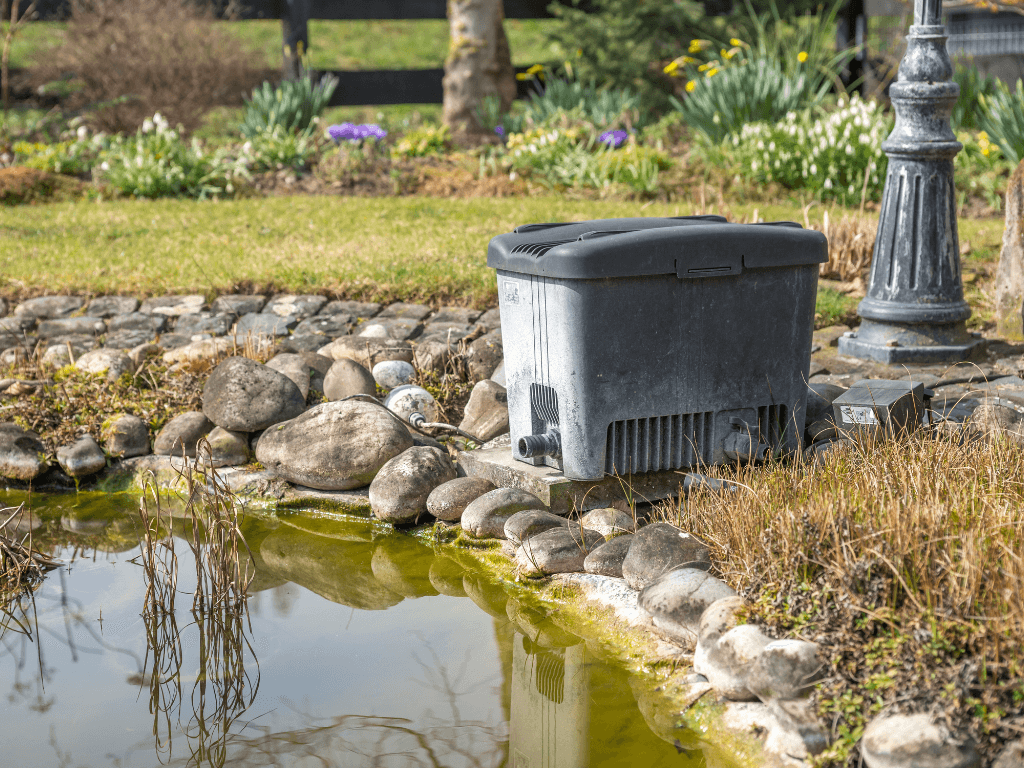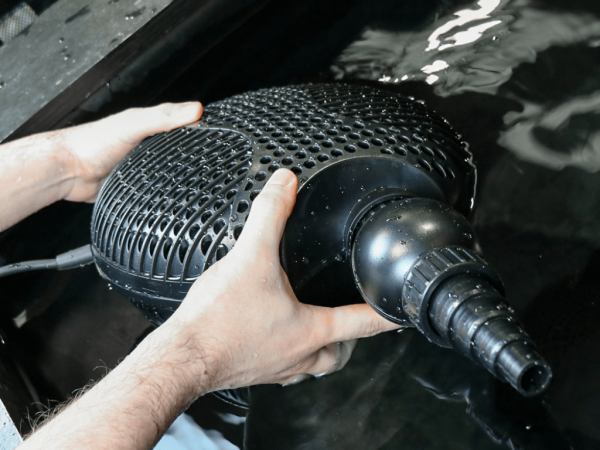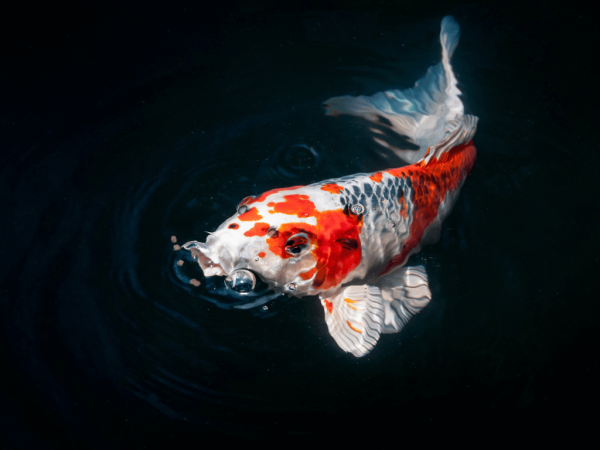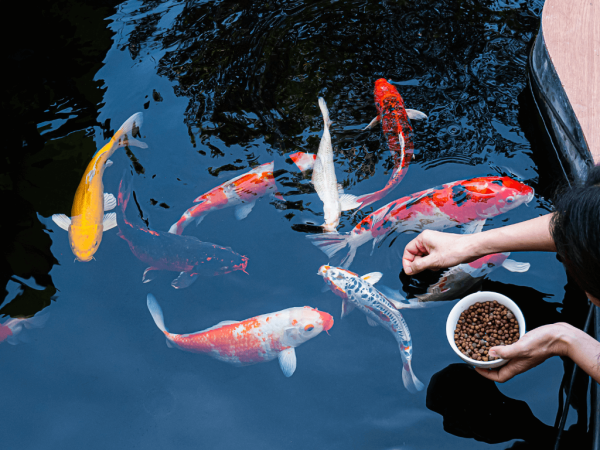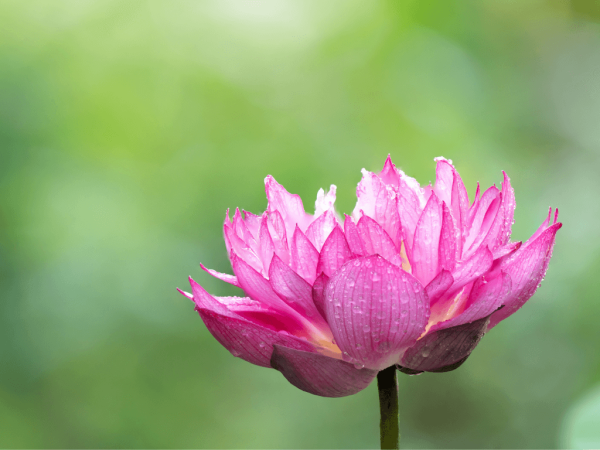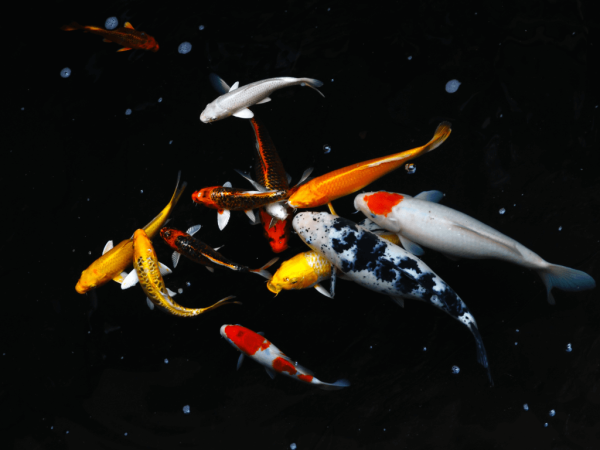Everything You Need To Know About Swell UK Pond Filters
If you want to maintain a healthy pond with a thriving population of pond fish, then you’ll need a pond filter. These vital pieces of pond equipment come in a variety of models, but they all serve one important goal: to keep your pond water healthy and, by extension, your fish healthy too. We stock a wide range of pond filters here at Swell UK, suitable for all types of garden ponds from small wildlife ponds to large Koi ponds. Here's everything you need to know about them...
What are pond filters?
Just like fish tank filters, pond filters remove waste products from your water column. There are a lot of things in a pond that can produce waste, from fish to decomposing plant material. If left unchecked, this waste can accumulate on the bottom of your pond, rot, and fill your water column with excess ammonia and nitrite that will, over time, poison your fish.
A filter doesn’t just physically remove waste from your pond water (mechanical filtration), it breaks it down too (biological filtration). Inside a filter there’s lots of filter foam that, thanks to its huge surface area, can harbour large colonies of beneficial bacteria. These beneficial bacteria feed on excess ammonia and nitrite in your pond, turning it into nitrate. This nitrate is readily absorbed by pond plants as they grow and, in turn, effectively removed from your system.
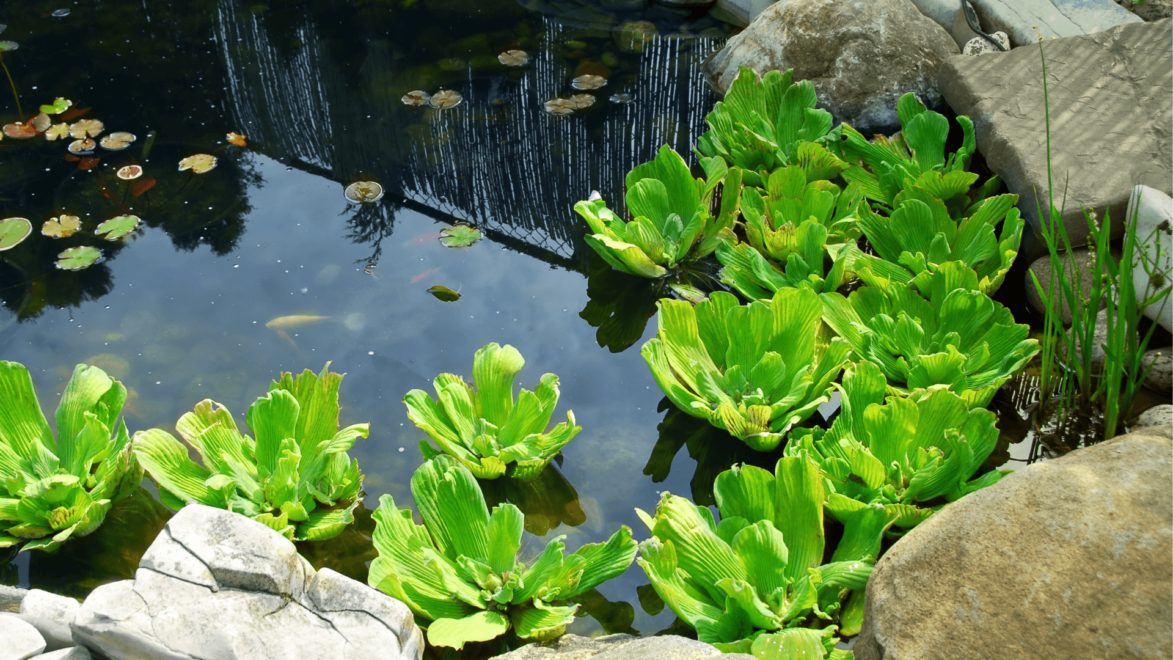
Not every garden pond requires a pond filter; wildlife ponds, for example, don’t typically house fish so there’s no real need for a filter to remove and break down waste. A Koi pond, on the other hand, requires a substantial pond filtration system to ensure a healthy environment and one that’ll support a growing population of large Koi carp.
There are lot of different types of pond filters to choose from, and they all differ in shape, size, form, and function. While each filter has its own unique strengths, and weaknesses, all will help to improve water quality and clarity. The model you ultimately choose will also depend on the size of your pond and the strength of your pond pump.
Pressure Filters: pros & cons
Pressure Filters, also known as pressurised pond filters, are pond filters that keep water pressurised as it leaves the filter unit. This is the biggest benefit of pressure filters over other alternatives as it allows them to be used alongside water features, like waterfalls, streams, and pond fountains. This also means that they can be placed below the water level of your pond, even partially buried!
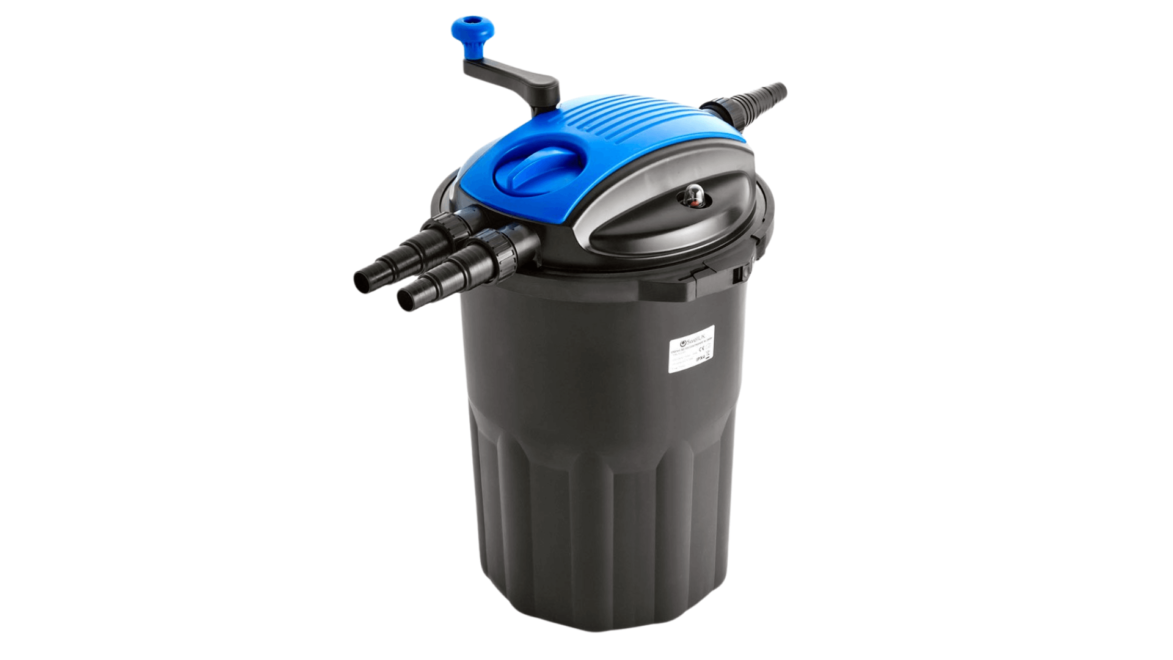
Like other pond filters, pressure filters have large filtration capacities, making them suitable for medium to large-sized ponds. There are also models, such as our Pressure Filter Premium that come with built-in UV lighting. This UV lighting stops green water in its tracks and also keeps your pond healthy by eliminating dangerous pathogens, bacteria, and viruses.
Typically, pressurised pond filters require more maintenance than other pond filters as they get clogged with waste solids more easily. This puts some pond keepers off these pond filters, but it’s worth noting that many come with internal cleaning mechanisms that get around this con, turning it into a pro. Our Pressure Filter Premium, for example, has a handle on its lid that can be easily cranked, squeezing the filter foams inside the filter, and ridding them of built-up muck and debris.
Box Filters: pros & cons
Box Filters, also known as flow-through pond filters, are one of, if not the most popular pond filtration solutions for garden ponds. They work in partnership with a pond pump that pumps water, under pressure, into the box filter. This water flows through the box filter and then drains out, via the force of gravity.
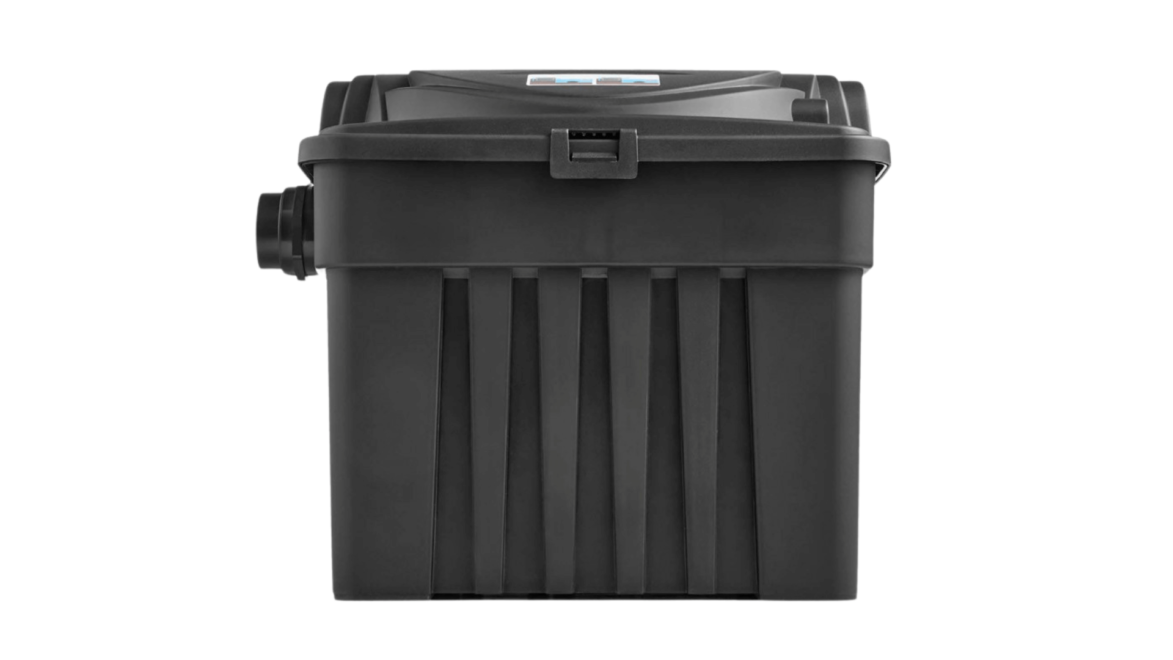
This way of working means that they’re limited in where they can be placed. To function properly, they must be installed so that their outlet sits above the water level of your pond. As water doesn’t leave them under pressure, they also can’t be used in conjunction with pond fountains and other water features that require a constant supply of water travelling under high pressure.
What makes box filters great, however, is their huge filtration capacities. These units often come packed with large amounts of filter foam, plus extra space for you to add your own filter media, like alfagrog and carbon. They’re also easy to maintain and don’t need to be cleaned quite as regularly as other alternatives, like pressure filters. To keep your pond clean, though, you will need to set aside some time each season to muck out your box filter.
In-Pond Filters: pros & cons
In-Pond Filters are some of the simplest pond filters available, typically combining a pond pump, a filter, and a UVC lamp into one easy-to-install unit. This makes them an attractive choice for first-time pond keepers. They’re also a perfect filter for miniature ponds where a large pressure filter or box filter would just be unnecessary.
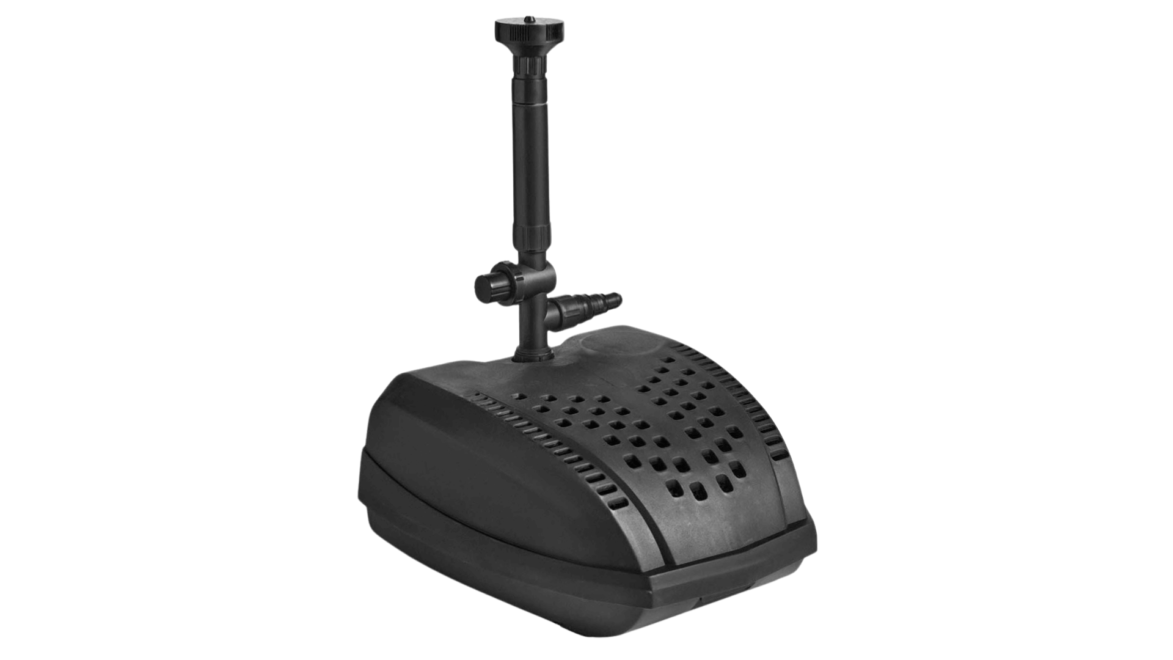
While they may be a great all-in-one solution for small ponds, however, in-pond filters do have their limitations. They’re typically small units that can’t support a large number of fish, nor produce the flow necessary to keep water properly circulating in a medium to large-sized pond.
Koi Pond Filters: pros & cons
Koi Pond Filters are typically massive pond filtration units, designed for ponds housing messy pond fish like Koi and goldfish. They usually work by pumping water into a huge drum that keeps specialised media – often called K+ media – in constant suspension. This increases the frequency of water-media interactions, boosting the filter’s biological filtration capacity and mechanical filtration capacity.
These types of pond filters keep your pond clean and water clear, not to mention free of excess nutrients that may promote algae growth and green water. Their size is also their biggest limitation, though. As big pond filtration units, they’re limited in where they can be placed and often need to be housed in an adjoining shed to ensure that their delicate components aren’t damaged by atmospheric elements. They take a lot of time to clean too, as should be expected for a big filter system.
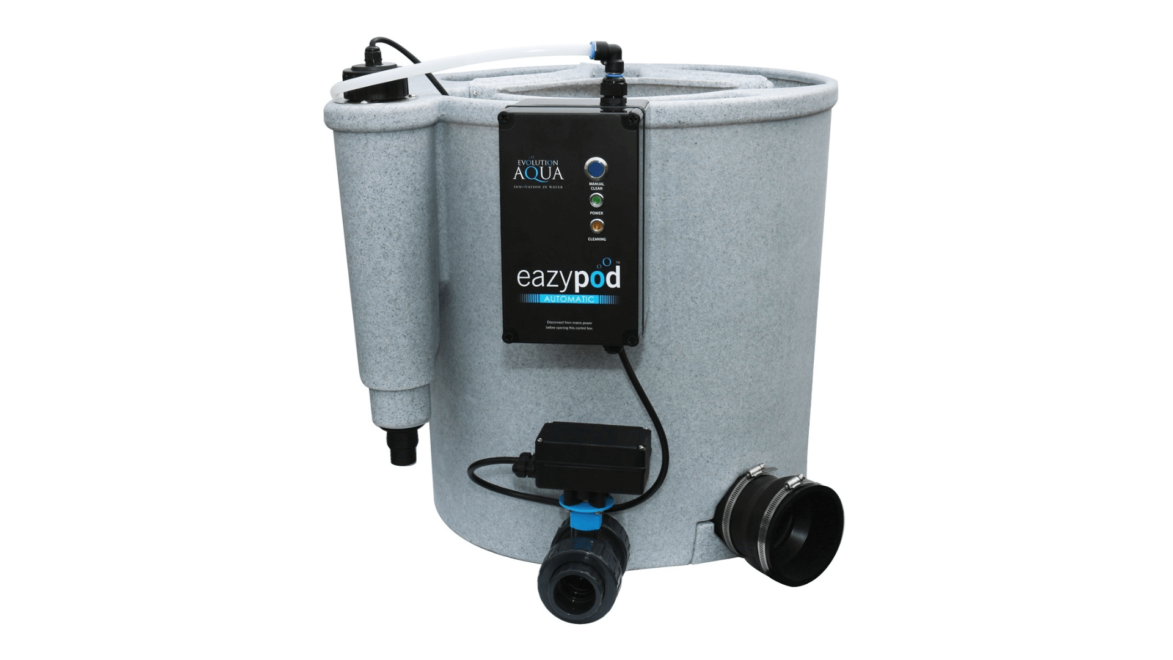
What’s the difference between pond filters and pond pumps?
For first-time pond keepers, it's often tough to tell the difference between a pond pump and a pond filter. In short, pond pumps supply pond filters with water, while pond filters filter excess nutrients and pollutants from your water, creating a healthy pond. When used together, pond pumps and pond filters form fantastic filter systems that, provided you stay on top of maintenance, have no trouble supporting a healthy pond full of pond life.
Some pond filters can be classed as all-in-one filters, and these typically come with built-in pumps that simplify your filter system and turn it into a single, plug-and-play unit. Another type of pond filter that falls somewhere in between a pond filter and a pond pump is a pond skimmer. These float on your pond’s surface and strain any floating debris, like leaves and uneaten food, into a filter basket using the suction force created by a built-in pump.
How do I choose the right pond filter for my pond?
There are a few important factors you need to consider before you choose a pond filter for your pond. These factors are as follows: the volume of your pond (more on that below), the number and type of pond fish you keep, the area available to accommodate the filter, and any water features that you may have in your pond, like pond fountains, streams, and/or waterfalls.
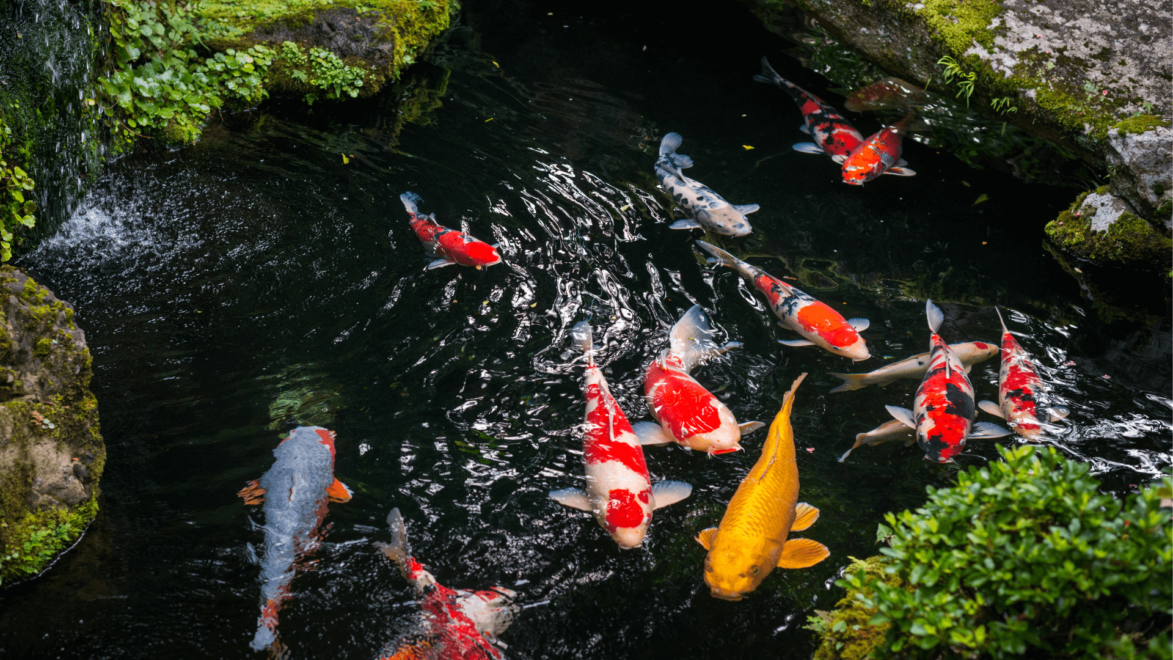
Bigger is always better
As a general rule of thumb when it comes to pond filters, bigger is always better. There’s no such thing as ‘over-filtering’, so if you have the budget and ground space for a larger and more powerful filter, always go for the bigger option – your fish will thank you. Aside from in-pond filters that typically stay small and are only really suitable for medium-sized ponds, pressure filters, box filters, and Koi pond filters all get pretty large. The biggest models amongst these ranges of pond filters are powerful enough to effectively filter huge ornamental ponds full of fish.
Partner with a suitably sized pond pump
Not every pond keeper has the budget for a big and powerful filter, nor the need if they have a wildlife pond or a small pond with very few fish. If you’re one of these pond keepers and you’re after a filter that’s perfectly tuned to the size of your pond, then you’ll want to select a filter that has a capacity that matches the volume of your pond. You’ll also want to partner this pond filter with a pond pump that’s capable of turning over the total volume of your pond at least once, ideally twice per hour.
Accounting for water features
Another important factor to consider is the presence of any water features. If you don’t have any water features, then your choice of pond filters isn’t really limited. If you do, however, then a pressure filter may be your perfect filter. As mentioned above, pressure filters keep water under pressure, allowing it to be easily pumped up to water features like waterfalls, streams, and pond fountains. This means that you can place your pressure filter below the water level of your pond, or even partially bury it.
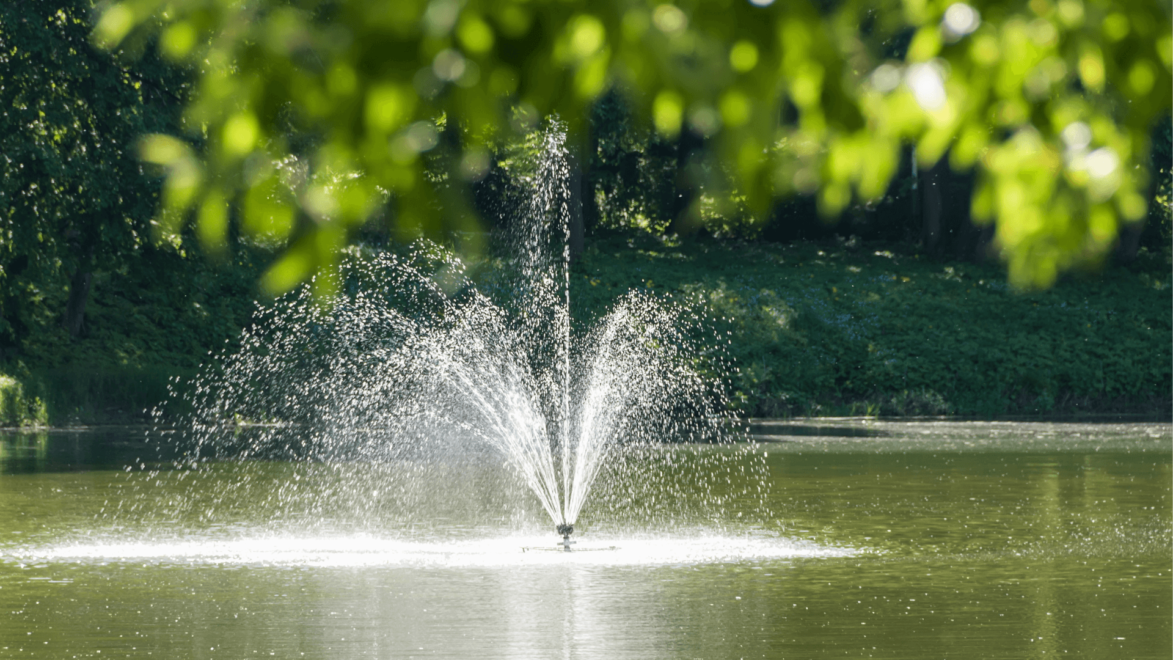
For more advice on how to choose the right pond filter for your pond, check out our handy help guide on the topic here.
How do I calculate my pond’s volume?
It might seem like a daunting task, but calculating the volume of your garden pond isn’t too difficult once you’ve got some measurements and an equation to plug them into. Start by measuring the average length, average width, and average depth of your pond. These can be rough measurements, there’s no need to measure every nook and cranny of your pond. Then, plug your numbers into the following equation:
- Average length (m) x average width (m) x average depth (m) = your pond’s volume in cubic metres. Then, multiply the cubic metres by 1,000 to get your pond’s volume in litres.
- Example: (5 x 5 x 1) x 1,000 = 25,000L
There’s a lot of information here to get you started, but for more advice and tips be sure to read our useful pond help guides and those from other reputable outlets, like the Royal Horticultural Society. Also, check out our range of other garden pond essentials, such as pond pumps, pond liners, pond fish food, pond treatments, and pond plants.




